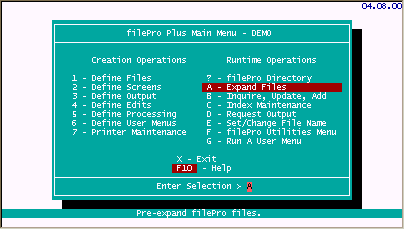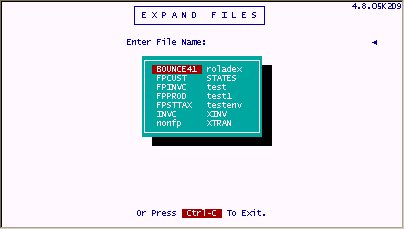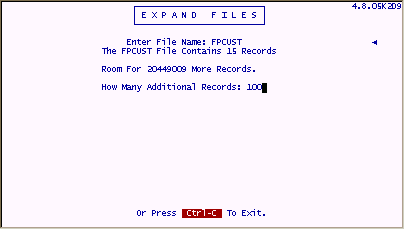
Contents of this section
Description
Extending Key Files [keyx1, keyx2, keyx3]
Key & Data Mismatch error
Description:
Expand Files lets you pre-allocate space for a file by adding unused records to it. This technique obviates the "free chain" under Unix. It also uses up disk space non-dynamically. This practice is not recommended under normal circumstances.
Select option A - Expand Files

Select a file from the list of filePro files.

Enter the number of additional records.

Extending Key Files (keyx1, keyx2, keyx3) :
Expand Files also lets you switch drives for new records being added to a key (and data) file. (You might want to do this when your data gets too large for the current filesystem.) If, at the "Number of Records to Expand File By" prompt, you type the word "switch". filePro will allow you to designate a new hard drive (filesystem). From this point on, all records in this file will be added to a file called "keyx1" (and datax1) in the same hierarchical path as the primary drive. If there already is a keyx1, filePro will add keyx2 and then keyx3. You are limited to 3 expansion filesystems for a total of four filesystems when considering the original "key" and "data" files. Extending "key" files is not recommended as normal procedure since it is better to move the entire key file to a larger drive. This feature is a holdover from earlier days when hard drives were very small. However, extended keys can be used for very large files when you have exceeded the maximum file size for the filesystem. Maximum file size is determined by the operating system/partitioning method.
Key & Data Mismatch error:
Expanding files by one record can sometimes fix a key/data length mismatch error. If a file that uses both a key and a data segment gets corrupted in a particular way, sometimes adding just 1 field from the Expand Files function will correct the situation.